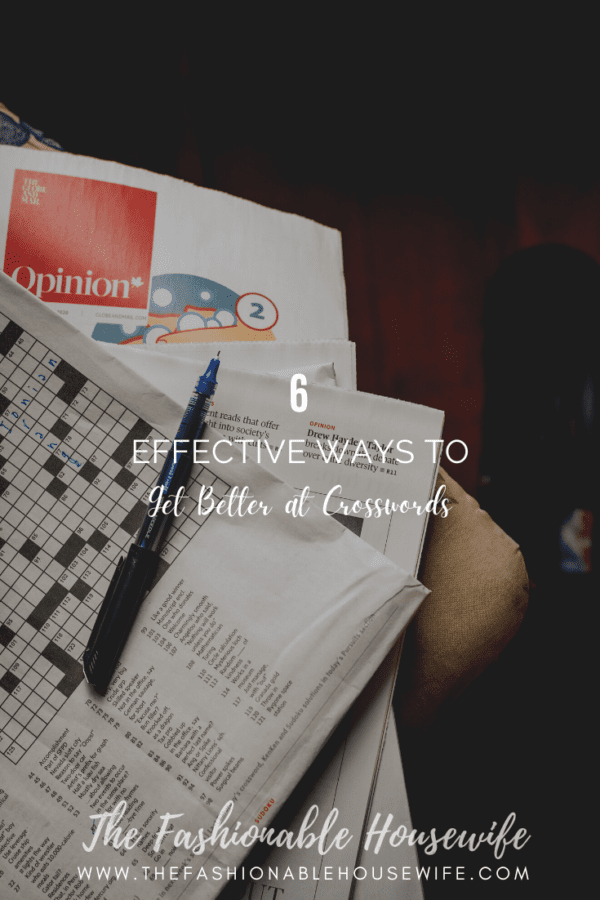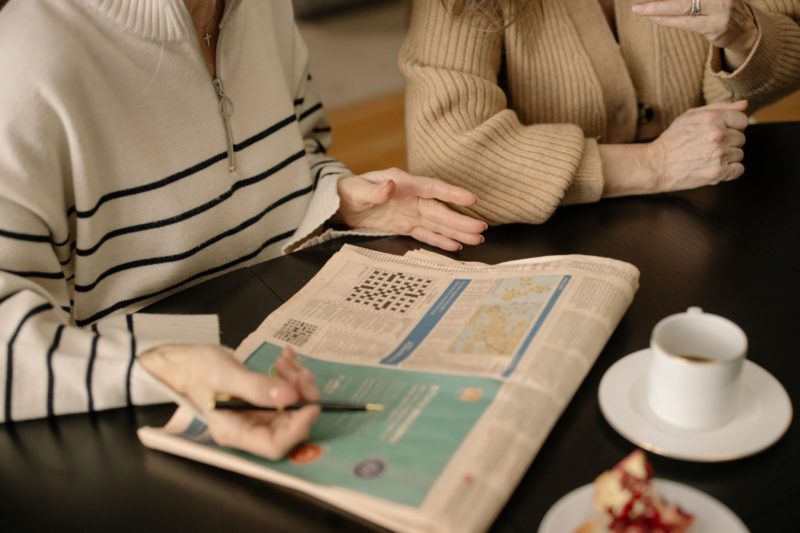
I always start a puzzle with so much enthusiasm, but after failing to connect words, I quit. However, I learned some tricks that helped me in solving crosswords.
Solving a crossword puzzle is a part of life for more than 50 million Americans. Howard Barkin won the latest American Crossword Puzzle. He gave some tips in an interview, and I also had some tricks searched on the internet before. Here are the best ones.
1) Practice Easier Puzzles
You have to start low-level puzzles before trying to solve ones from the newspaper. You can solve Monday’s puzzles of The New York Times as they get progressively harder through the weekend.
You can search the internet and solve puzzles for kids. Start by solving puzzles for sixth or seventh-class kids first. After that, you can increase the level to solve harder ones.
Google can be your best friend as you can find puzzles, clues, 2-12 letter words, and more on it. You can also use apps and websites to practice.
2) Try Solving Fill-in-the Blanks First
Fill-in-the-blanks clues in any crosswords are generally the simplest ones to solve. They are an ideal way to get going. You do not need to get stuck on a single clue. Fill-in-the-blanks give you a massive boost of confidence.
You can practice the same trick in low-level puzzles too. Also, try to remember some common words if they reappear in these fill-in-the-blanks.

3) Use an Online Tool
Using an online tool specially designed to solve crosswords and puzzles is very efficient. Google is undoubtedly a good option, but using special tools and websites is better. You do not need to search for everything individually in these tools. Everything will be in front of you, and you only need to select what you want.
These tools help you find and make new words, find words according to the character length, and also give you different dictionaries. One of my favorite websites is word-finder.com, which helps to find new words for your next crossword, Scrabble, Anagram, etc.
4) Prioritize Solving 3 or 4 Letters
Solving short words is an easier job than targetting the bigger ones. Some short words can undoubtedly be more challenging, but usually, they are easier to solve. The English language has fewer three or four-letter words than others. So, there is a high probability of you finding them repeatedly.
You can also solve three or four-letter crosswords only. They will take lesser time and effort. Try to put 10-20 minutes daily to solve three or four-letter crosswords only.
5) Check the Number and Tense of the Clues
Sometimes, you will notice that the clues are in the past tense. You can make decent assumptions based on that. Your clue can be in the present or past tense, or it might be singular or plural. Guessing become easier if you take note of that.
For instance,
- You can think of words ended in ED if the clue is in the past tense,
- You can think of words ended in S/ES if the clue is in the present tense,
- You can think of words that ended in ING if the clue is in the present continuous tense/ending in ING.
6) Keep Learning the Common Crossword Answers
You might want to learn some common crossword puzzle answers. You can use Google, websites, or apps to find some common crossword words. There are not many crossword puzzles that do not use repetitive words.
You can also try to remember their synonyms for a better grip on the crossword. Remembering an antonym and synonym of a word helps massively in all word games,
Wrapping Up
Solving crossword puzzles, anagrams, Scribble, and more similar games is a great way to exercise your mind. They are more mentally challenging than jigsaw puzzles so you get a workout for your brain while having fun! You can also play these games with your friends at a get-together or after-dinner parties with your families and friends.



